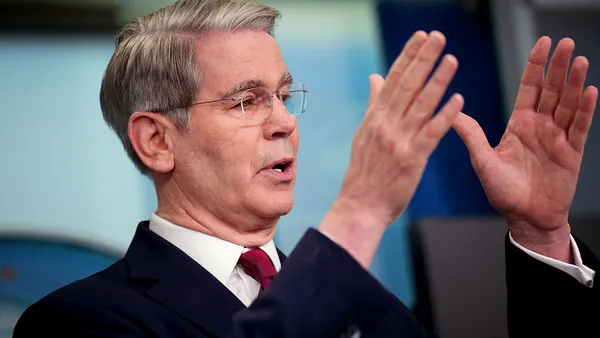Bank of America CEO Brian Moynihan said banks shouldn't lose sight of the basic banking principles their customers rely on as they face increasing competition from big tech companies, during a Washington Post live interview Thursday.
"We study it all — fintech, small ... or large — what they're doing, and thinking about the structure," he said. "But I think that the key is that you do step across the line when you have customers' money."
A Google executive said this month that the company would launch a checking account in partnership with Citi and Stanford Federal Credit Union, a move that positions it to compete with traditional banks.
That news follows tech titan Apple's own foray into the banking space, with its launch of a credit card in August. The Apple Card is backed by investment bank Goldman Sachs.
As banks feel the pressure from tech disruptors who are offering banking services, Moynihan said banks can't forget that people still want regulation and the security that comes with it.
"One of the things we have to be careful [of] is, with all these competitors, that we make sure we don't forget the basic principles," he said. "If you take deposits, make loans, society wants regulation around you because you end up with a lot of people's money. And if something goes kablooey, it's a problem."
Moynihan also discussed the economy and said the U.S. does not need negative interest rates, something President Donald Trump has repeatedly called on the Federal Reserve to enact.
"We should feel good that the U.S. has positive rates," Moynihan said. "Our economy is growing at 2%-plus, and other economies in the world are not. That's why they need the negative rates."
He also addressed the growth of digital banking, and said that despite widespread adoption, customers still want a blend of "high-tech and high-touch."
"When I first became a strategist, people came in and said all the bank branches will be gone in 20 years," Moynihan said. "Well, it's more than 20 years ... we still have 4,100 of them. So they're a critically important structure."













